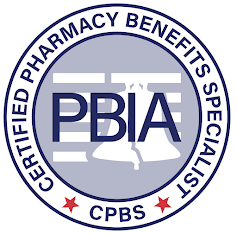3 Trends Reshaping Pharmacy Benefits Management and other notes from around the interweb:
- 3 Trends Reshaping Pharmacy Benefits Management. We offer a comprehensive analysis of three critical areas transforming the sector: GLP-1 medications, biosimilars, and PBM transparency. Our analysis covers diabetes and weight loss management trends, the impact of biosimilars on the market, and the complexities of PBM rebate structures. The prevalence of diabetes in the United States has reached alarming levels, with approximately 12% of adults diagnosed with the condition. Even more concerning is the additional 40% of the population classified as pre-diabetic, underscoring the potential for a significant increase in diabetes diagnoses in the near future. This epidemiological landscape has profound implications for employer-sponsored health plans, particularly in relation to the coverage of GLP-1 (Glucagon-Like Peptide-1) receptor agonists.
- CMS’ negotiated drug prices: 12 notes. The brand names of the 10 drugs included under IRA price negotiations are as follows: Januvia; multiple Novo Nordisk variations to treat diabetes, including Fiasp; Farxiga; Enbrel; Jardiance; Stelara; Xarelto; Eliquis; Entresto; and Imbruvica. The largest discount among all 10 drugs is 79%, lowering the list price for a 30-day supply of Januvia in 2023 from $527 to $113. The most expensive drug covered, also the drug with the smallest discount at 38%, is Imbruvica for the treatment of blood cancers. Imbruvica’s list price for a 30-day supply in 2023 was just under $15,000 and will now be offered at $9,319 for Medicare-covered patients in 2026. Some of the other drugs included were approved to treat various conditions including diabetes, cardiovascular diseases, kidney disease, arthritis, psoriasis, Crohn’s disease, ulcerative colitis, blood clots, and more.
- Prescription Rebate Guarantees: Employer Insights. This study sheds light on employers’ perspectives of rebate guarantees, dependency upon rebate dollars, and the role that pharmaceutical rebates or employer benefits consultants play in their pharmacy benefits manager (PBM) selection. The common occurrence of rebate guarantees in the study sample raises concern given that rebate guarantees may obscure employer visibility into the actual net prices of drugs, resulting in formulary inclusion of higher-cost products and higher overall total pharmacy costs. Employers should consider the role of employer benefits consultants in presenting drug contracting options and, ultimately, PBM selection. It is important to keep the employer perspective in mind when considering reforms to the current rebate-centric incentives of pharmacy benefit management.
- FTC Releases Interim Staff Report on Prescription Drug Middlemen. The Federal Trade Commission published an interim report on the prescription drug middleman industry that underscores the impact pharmacy benefit managers (PBMs) have on the accessibility and affordability of prescription drugs. The interim staff report, which is part of an ongoing inquiry launched in 2022 by the FTC, details how increasing vertical integration and concentration has enabled the six largest PBMs to manage nearly 95 percent of all prescriptions filled in the United States. This vertically integrated and concentrated market structure has allowed PBMs to profit at the expense of patients and independent pharmacists, the report details. “The FTC’s interim report lays out how dominant pharmacy benefit managers can hike the cost of drugs—including overcharging patients for cancer drugs,” said FTC Chair Lina M. Khan. “The report also details how PBMs can squeeze independent pharmacies that many Americans—especially those in rural communities—depend on for essential care. The FTC will continue to use all our tools and authorities to scrutinize dominant players across healthcare markets and ensure that Americans can access affordable healthcare.”
